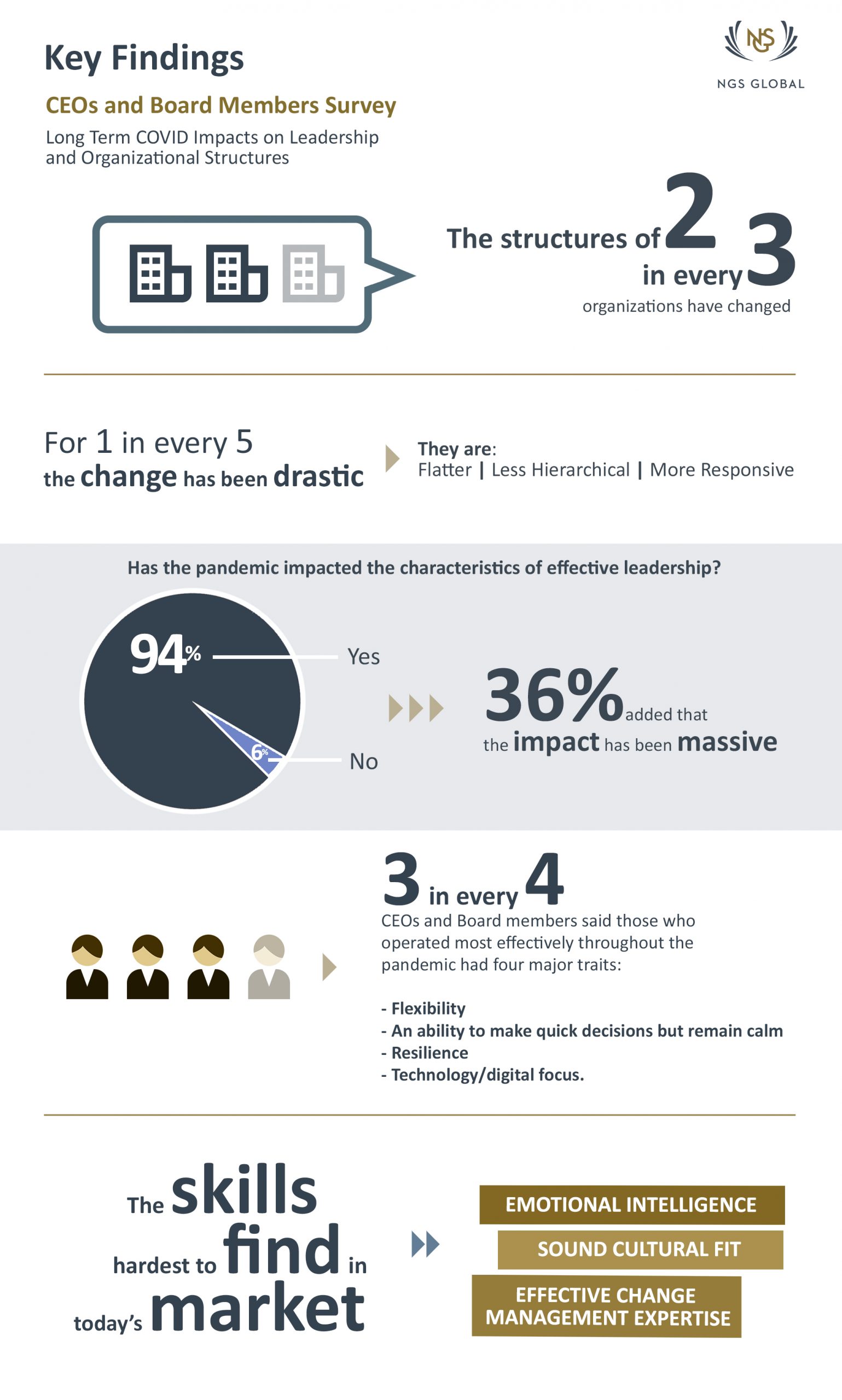Utilizing our extensive global network of CEO and board member contacts, NGS Global investigated the long-term impacts of the pandemic on organizational structures and leaderships styles. More than three years since the start of COVID, there has been a significant and lasting impact across almost all businesses.
The strictly confidential survey was completed by CEOs and board members only. We asked them to take a long-term, big-picture, strategic view of where the organizations they lead are at. Survey respondents came from all over the world, and run a wide range of large firms in a variety of industries, such as financial services, consumer, industrial, technology, and infrastructure.

Flatter, More Responsive Organizational Structures
The structures of two in every three businesses have changed as a result of the pandemic, with one in every five leaders indicating the change has been drastic. When asked to describe the change, the most common response was that organizations today are flatter hierarchically which, CEOs and board members believe, provides them with greater agility and heightened responsiveness, as well as an empowered workforce with greater autonomy.
One respondent said, “We have devolved responsibilities directly to individuals, making them more accountable for their time and output, and hopefully empowering them in the process.”
Leadership Styles More Empathic, Agile
94% of the participants feel that the pandemic has impacted the combination of leadership characteristics that are needed in today’s world, with more than one third (36%) saying that the change is massive.
When asked in what way, most pointed to the increased need for empathic and agile leadership, along with a different leadership approach that optimizes hybrid working arrangements, such as changes to communication styles and methods, and managing outcomes rather than time.
“Leaders post-pandemic need to be both pragmatic and transformational in order to deal with an ever-changing environment in a sensible and practical manner,” said one participant.
The majority of CEOs and board members (57%) do not feel that the pandemic has changed the qualifications they look for when hiring senior executives. That being said, three in every four CEOs and board members say that those who operated most effectively during the pandemic are due to four common denominators:
- flexibility and adaptability
- an ability to make quick decisions but remain calm
- resilience, and
- a technology/digital focus.
Skill-Sets Hardest to Find
Today, respondents felt that the skill sets hardest to find when hiring executives is emotional intelligence, sound cultural fit and effective change management expertise.
One respondent said: “Clearly, creative problem solving, leadership and influencing skills, emotional intelligence and learning agility are all essential given the speed of change in our world.”
Important Post-Pandemic Leadership Traits
We closed the survey by asking participating CEOs and board members what one leadership trait they believe is significantly more important today than it was pre-pandemic. Interestingly, not one of them mentioned ‘financial management’, ‘business growth’ or ‘increasing profits’. Every single response was instead focused on emotional intelligence (EI) traits, such as empathy, adaptability, and communication.
One participant said, “the heart of leadership is managing relationships, and EI is what enables leaders to navigate these interpersonal relationships successfully.”
Another added: “never forget a good organization and its leadership can balance three components of empathy: cognitive, emotional and compassionate.”









